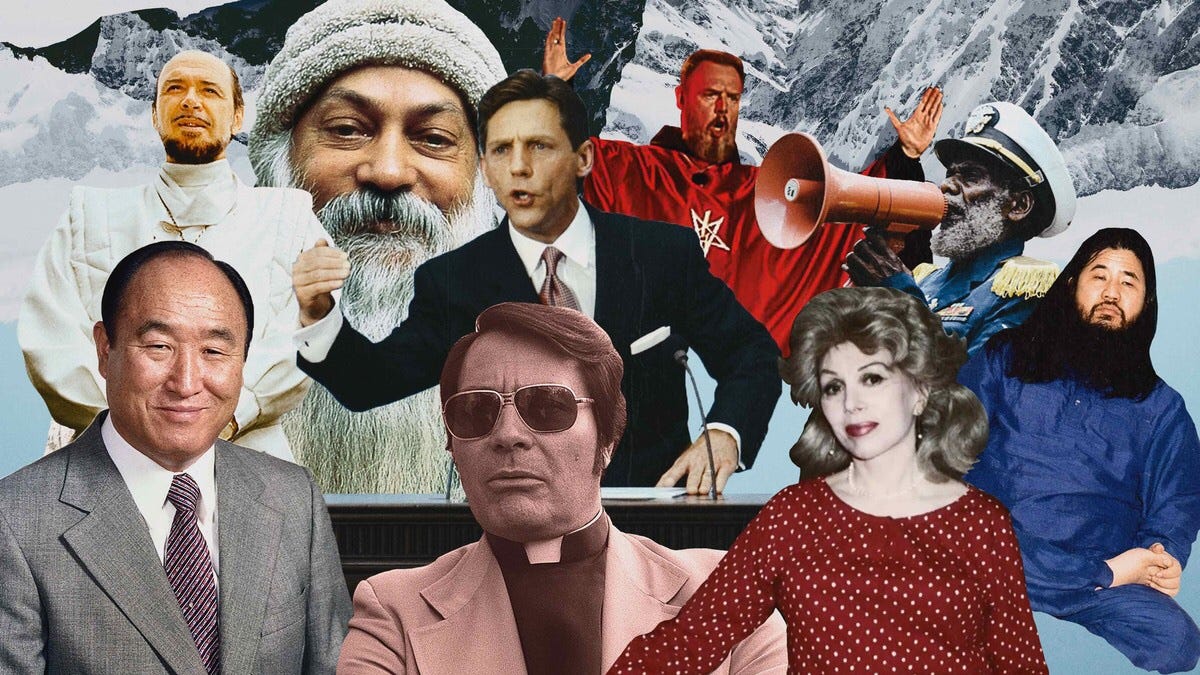Imagine, for a moment, a world where your phone could order groceries, diagnose your ailments, and even write your next novel. While this may seem like science fiction, the reality is that we are already living in this world, albeit in its nascent stages. The 21st century is a new age, marked by technological advancements, global interconnectedness, and unprecedented social and environmental challenges. It’s a time that demands adaptability, resilience, and a willingness to navigate the uncharted waters of the future.

Image: medium.com
This article explores the intricate challenges and opportunities that define our new age. From the exponential growth of technology to the evolving landscape of work and the pressing need for sustainability, we will delve into the crucial factors shaping our present and future. Understanding these forces is not just about intellectual curiosity, but about actively engaging in shaping a world that is both prosperous and equitable for generations to come.
The Age of Disruption: Technology and its Unforeseen Consequences
The Rise of Artificial Intelligence and Automation:
The dawn of the 21st century has witnessed the rapid rise of artificial intelligence (AI) and automation. From self-driving cars to AI-powered medical diagnoses, these technologies are transforming industries, creating new job opportunities, and also raising concerns about displacement and the future of work.
The impact of AI is profound and multifaceted. It has the potential to solve some of humanity’s most pressing problems, like disease eradication and climate change mitigation. However, the ethical considerations surrounding AI are equally significant. Questions arise about the potential for bias in algorithms, the loss of human jobs, and the creation of new forms of social and economic inequalities.
Navigating the Digital Landscape:
The internet has become an integral part of our lives, connecting us globally and providing unprecedented access to information. However, this digital revolution has also come with new challenges, including cybersecurity threats, online misinformation, and the erosion of privacy.
As we increasingly rely on technology, the need to navigate this complex digital landscape responsibly becomes paramount. We must equip ourselves with critical thinking skills, media literacy, and a strong understanding of responsible online behavior. This includes protecting our privacy, guarding against fraudulent activities, and being mindful of the information we consume and share.

Image: www.youtube.com
The Evolving Landscape of Work: Rethinking Traditional Models
From Industrial Age to the Knowledge Economy:
The traditional industrial model of work, characterized by repetitive tasks and factory settings, is fading into the background. The rise of the knowledge economy has ushered in a new era where creativity, adaptability, and critical thinking are prized. This shift requires rethinking education systems, fostering lifelong learning, and developing skills that are in demand in this ever-changing job market.
Today’s workforce is increasingly mobile and interconnected, with freelancers, remote workers, and entrepreneurs becoming more common. This necessitates a shift towards flexible work arrangements, emphasizing collaboration, and cultivating a mindset that embraces continuous learning and adaptation to new skills and technologies.
The Rise of the Gig Economy and its Implications:
The gig economy, characterized by short-term contracts and freelance work, has become a significant force in the labor market. While it offers flexibility and autonomy, it has also generated concerns about job insecurity, lack of benefits, and the potential for exploitation.
As we navigate this complex terrain, it is crucial to advocate for fair labor practices, ensure access to social safety nets, and explore models that promote worker well-being within the gig economy.
Global Interconnectedness and the Challenges of a Shared Future
Climate Change: A Collective Threat:
Climate change poses a formidable challenge for our interconnected world. Rising sea levels, extreme weather events, and resource scarcity are not confined to specific regions but threaten the well-being of humanity as a whole.
The international community is actively working towards solutions, committing to reducing greenhouse gas emissions and promoting sustainable practices. However, these efforts require a collective commitment from individuals, businesses, and governments to prioritize environmental sustainability and adopt a long-term perspective in our decision-making.
Global Cooperation in a Time of Uncertainty:
The new age demands international cooperation on a scale never seen before. Addressing global challenges, from pandemic response to nuclear proliferation, requires shared solutions and a willingness to work across national boundaries.
However, globalization has also led to increased economic and political tensions. Populism, nationalism, and trade disputes are becoming increasingly prevalent, threatening to derail international collaboration and undermine global progress.
Embracing the Challenge: A Mindset for the New Age
Facing the challenges of the new age requires a fundamental shift in our mindset. It calls for a vision of the future that is both optimistic and pragmatic, one that acknowledges the complexities of our interconnected world while embracing the opportunities for innovation and progress.
This shift involves several key elements:
- Lifelong Learning: The pace of change is rapid, and staying relevant requires continuous learning and adaptation. Embrace new technologies, embrace new skills, and remain intellectually curious throughout your life.
- Critical Thinking and Media Literacy: The digital age is filled with information, both accurate and misleading. Develop critical thinking skills, learn to evaluate information sources, and resist the spread of misinformation.
- Empathy and Inclusivity: Our interconnected world is characterized by diversity, facing challenges that impact humanity as a whole. Cultivate empathy, respect for differing perspectives, and a commitment to building an inclusive and equitable society.
- Global Citizenship: Recognize that our actions have global implications. Take an active role in shaping a sustainable future, promoting international cooperation, and addressing issues that transcend national boundaries.
Facing The Challenge Of A New Age
Conclusion:
The new age is a time of profound change and opportunity. Navigating its challenges and harnessing its potential requires a commitment to lifelong learning, critical thinking, empathy, and a vision of a shared future. By embracing these principles, we can build a world that is not only technologically advanced but also socially just, environmentally sustainable, and ultimately, a better world for all.






